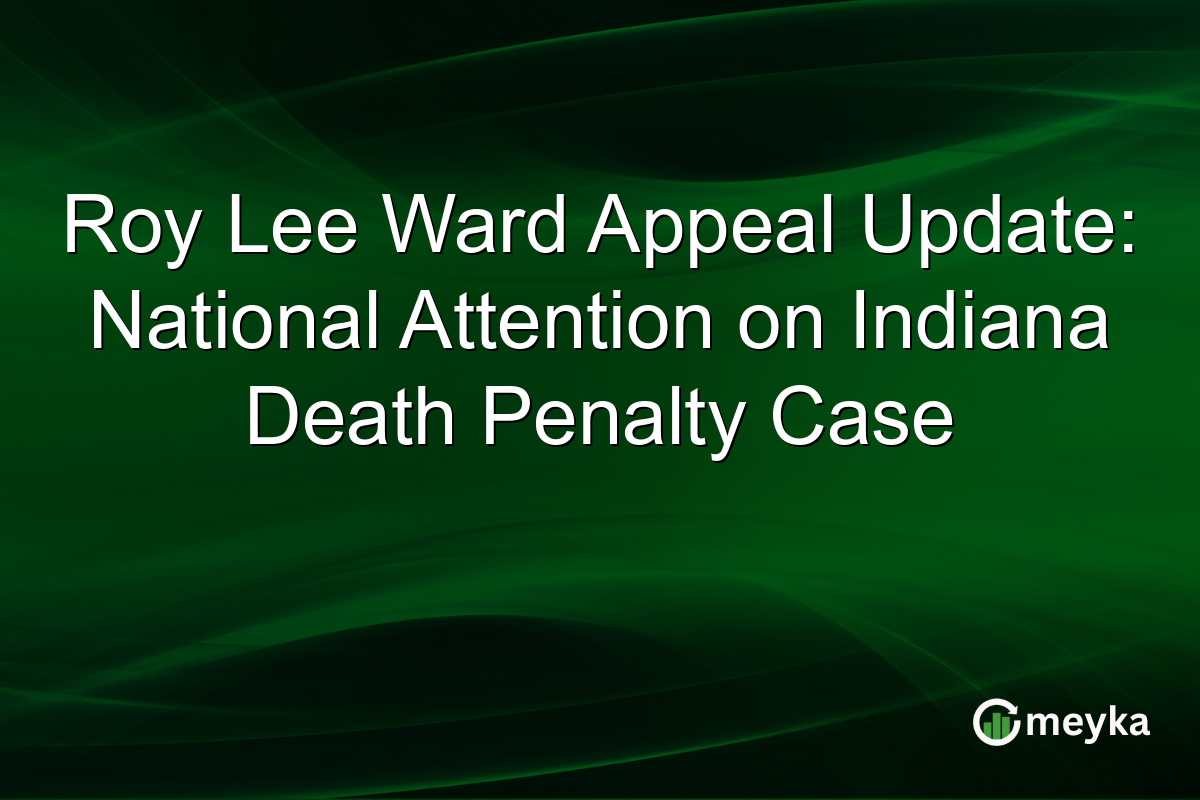Roy Lee Ward Appeal Update: National Attention on Indiana Death Penalty Case
The Roy Lee Ward appeal update is capturing national attention as new legal filings emerge. This high-profile Indiana death penalty case involves the murder of Stacy Payne, which sparked intense legal debates. Legal analysts and public forums are diving deep into the implications of these developments, particularly their effects on justice spending and state capital punishment policies. Let’s break down the key aspects and investigate what this means for the future.
Background of the Roy Lee Ward Case
Roy Lee Ward’s case revolves around the tragic murder of Stacy Payne in 2001. He was convicted and sentenced to death in Indiana, raising crucial discussions about the death penalty’s application in the state. As of 2025, a new appeal has been filed, leading to significant legal scrutiny. This appeal challenges the procedural aspects of his conviction. Legal experts are closely analyzing the intricacies to assess potential impacts on broader capital punishment policies. The appeal has reignited longstanding debates on the morality and fiscal responsibility of the death penalty. Read more on Reuters.
Legal Implications and Public Response
Indiana’s death penalty case, involving Ward, is testing the legal system’s procedures. The complexity of the appeals process is under examination. This has sparked public response, with many debating law enforcement practices and the costs involved in death penalty cases. Public sentiment is split, with some advocating for justice reform and others seeing Ward’s case as a necessary legal precedent. The focus is on how this case could shape future legal decisions, particularly concerning capital punishment’s fiscal implications. This recent social media discussion provides perspectives from legal experts and the public. Engage with the discussion on X.
Financial Impact and Policy Considerations
The financial ramifications of the Ward appeal are considerable. Legal analysts note government expenses in prolonged legal battles and the broader societal costs. Indiana, like other states, faces scrutiny over the resources allocated to capital punishment cases. The question of whether these funds could be better spent elsewhere is again at the forefront. Policy makers are evaluating potential reforms to balance justice with financial prudence. Discussions continue to focus on aligning state policies with budget considerations and public opinion, especially under the looming issue of the death penalty’s long-term sustainability. Explore the financial analysis on Bloomberg.
Final Thoughts
The Roy Lee Ward appeal update highlights the intersection of legal complexities, financial considerations, and public opinion. As Indiana navigates this death penalty case, broader questions about justice system reforms arise. States are challenged to reconsider the costs and ethical dimensions of capital punishment. For now, sustained public and legal scrutiny will likely influence future policies. Advocates and policy makers must continue these crucial discussions to shape a fair and effective justice system.
FAQs
Roy Lee Ward’s case is in the appeal stage, with new filings challenging his conviction’s procedural aspects. The appeal is under legal review and could have significant implications for Indiana’s death penalty policies.
Ward’s appeal has reignited debates over the costs and implementation of the death penalty in Indiana. It pressures lawmakers to assess the fiscal responsibility and fairness of capital punishment practices.
The appeal focuses on procedural issues related to Ward’s conviction. Legal experts are analyzing these arguments to determine their potential to alter Indiana’s approach to the death penalty.
Disclaimer:
This is for information only, not financial advice. Always do your research.






